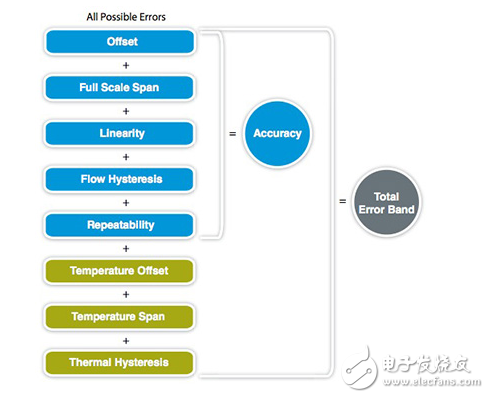
资料下载

可靠性是基于传感器的医疗应用的决定性因素
可靠性是基于传感器的医疗应用的决定性因素
在医疗成本上升,人口老龄化,以及早期诊断在治疗疾病和挽救生命的重要性的推动下,传感器的发展在医疗领域发挥着关键作用。传感器是用于医疗应用范围从一次性和可重复使用的输液泵压力传感器温度探针阵列,气流传感器在麻醉系统、肾透析机、力传感器、磁、湿度、气流,在一个典型的睡眠呼吸暂停机压力传感器。
传感器被采用在这些和许多医疗应用,由于其准确性,智能,能力,体积小,功耗低,而且,首先,可靠性。本文将研究当前的医疗趋势,以及它是如何推动传感器技术。我们还将讨论必须满足的可靠性标准,并看一些可用的部分,体现了目前的传感器状态的艺术。

Equipment or physiology?
A patient’s heart rate, blood glucose, and body temperature can be monitored to help clinicians diagnose the state of illness based on accurate sensor readings. But therein lies the rub. As in all things, malfunctions exist and it’s often difficult to pinpoint whether the culprit is the device itself or the physiology of the patient.
If a pacemaker fails, for example, it can be that the malfunction occurred because of equipment failure or changes in the patient’s underlying native heart rhythm. Medical body sensors can be implanted or attached to the human body and when inaccurate data is gathered; sometimes it may be attributed to incorrect placement on the body, which, in turn, can seriously influence diagnosis. Fault values combined with abnormal physiological data based on illness make it challenging to determine true faults. Even environmental and logistical factors impact accuracy. Fluorescent lighting can cause data errors in pulse oximeters and devices placed on a patient’s body with adhesive tape may fall off and result in detection error.
All of that notwithstanding, sensor manufacturers working in the rapidly growing healthcare industry must keep safety, accuracy, and reliability moving in the right direction. To ensure that they do regulatory agencies have put in place a variety of standards that must be met.
声明:本文内容及配图由入驻作者撰写或者入驻合作网站授权转载。文章观点仅代表作者本人,不代表电子发烧友网立场。文章及其配图仅供工程师学习之用,如有内容侵权或者其他违规问题,请联系本站处理。 举报投诉
- 相关下载
- 相关文章







